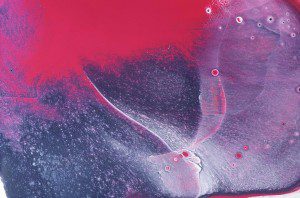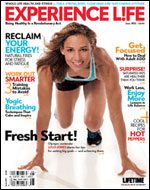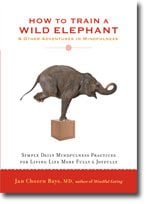 The point of life is that there is no point. We are biological beings equipped with impulses, intelligences, and insights that interplay with recent human creations such as language, culture, religions, and the arts. With memory, relics, and writing, we have history. Culture attempts to tell us what the point of life is, but in an ultimate sense it’s arbitrary. The existentialists remind us that it’s absurd and we are responsible for creating our own meaning. So, then, what is the point?
The point of life is that there is no point. We are biological beings equipped with impulses, intelligences, and insights that interplay with recent human creations such as language, culture, religions, and the arts. With memory, relics, and writing, we have history. Culture attempts to tell us what the point of life is, but in an ultimate sense it’s arbitrary. The existentialists remind us that it’s absurd and we are responsible for creating our own meaning. So, then, what is the point?
The “point” of life is to negotiate the laws of physics in ways that are sustaining and if possible, graceful, joyful, and significant. As humans we have the opportunity (and perhaps if you are willing to pick up the mantle – obligation) – to be impeccable: awake, connected, ethical, and selfless (that is, not preoccupied with our own needs and stories all of the time).
To be impeccable we must be mindful: aligned with our purpose (not sure what that is, inquire within); aware of how our actions affect others (including how our own actions both behavioral and mental affect ourselves); and able to know where we are in space and time in any given moment. Here we have choice. Without impeccability we are swept along by habit, blind mostly, and driven by factors that may not be in our best interest or others.
When absurdity and impeccability come together it makes our constant self-preoccupation seem trivial. The 21st century cultures of the West, particularly in the United Sates have created an obsession with self. Polly Young-Eisendrath calls this phenomenon the “Self-Esteem Trap.” We raise our children to revere specialness and in the process make them phobic of anything that may diminish this specialness. Life must be orchestrated instead of lived and we become vulnerable to disappointment, setbacks, and obstacles seeing them as somehow diminishing the self. The special self with its self-preoccupation does not lead to happiness. We are taking record numbers of antidepressants and other substances to medicate a pervasive sense of dis-ease, dissatisfaction, and discontent.
In order to get beyond ourselves we must first consider what self is. If you think you’re a thing – like a book or a BBQ, you’re mistaken. A thing has an inside and an outside and we, too, appear to have these dimensions, yet this “inside” is always in exchange with the alleged “outside” world. We exchange atoms, molecules, substances. Our skin is alive and dynamic. We have special portals for exchange – especially our noses and mouths, breathing all the time, the quintessence of exchange. We exchange our atoms on an annual basis and most of our cells die off and are replaced every seven years. So where does this self supposedly end and the world begin?
Like meaning, discussed above, any such boundaries are arbitrary, drawn of convenience and influenced by culture. Here in the West we tend to think of ourselves as self-contained. I’m a container of ideas, beliefs, and possessions that interacts with other containers. If I’m lucky I’ll have more than you do. In the East, there may be a tendency to distribute identity across a group of individuals; self is more of an ensemble.
The way we configure self has implications for just about everything–especially happiness and compassion. Interestingly, we are built for exchange in relationships too; indeed, are brains are deeply social and depend on a rich supportive relational environment for optimal development.
We have systems in our brains that equip us to function in a world populated by others. One of these systems is the mirror neuron system. This system allows us to imagine what another person is feeling by replicating that feeling within ourselves. This enables us to be empathetic, and lays the groundwork for compassion.
In Wild Chickens and Petty Tyrants: 108 Metaphors for MindfulnessI made the case that we can only understand self through metaphor. I later realized something more profound, disturbing, and exciting. The self is a metaphor. What do I mean by this? We are a process not a static thing. We always understand the current moment through a filter of learning and memory. We project ourselves into the future with such shortcuts and, by doing so, we mostly skip over the experience of being alive right now
When we break out of our habitual categories developed through learning and memory we can begin to see the world in a fresh way; we can appreciate the dynamic changing nature of things. And we can do so with less omission, boredom, and impatience. We have the chance to be impeccable.
 Waking Up is a Revolutionary Act: A Manifesto for Mindful Living was inspired by Experience Life magazine, Editor-in-Chief, Pilar Gerasimo’s, article Being Healthy is a Revolutionary Act: Renegade Perspectives for Thriving in a Mixed Up World, and its accompanying A Manifesto for Thriving in a Mixed Up World. Visit http://RevolutionaryAct.com, the website devoted to Being Healthy is a Revolutionary Act: A Manifesto for Thriving in a Mixed-Up World and download your own copy of the manifesto and join the movement! Read more about Experience Life here.
Waking Up is a Revolutionary Act: A Manifesto for Mindful Living was inspired by Experience Life magazine, Editor-in-Chief, Pilar Gerasimo’s, article Being Healthy is a Revolutionary Act: Renegade Perspectives for Thriving in a Mixed Up World, and its accompanying A Manifesto for Thriving in a Mixed Up World. Visit http://RevolutionaryAct.com, the website devoted to Being Healthy is a Revolutionary Act: A Manifesto for Thriving in a Mixed-Up World and download your own copy of the manifesto and join the movement! Read more about Experience Life here.

